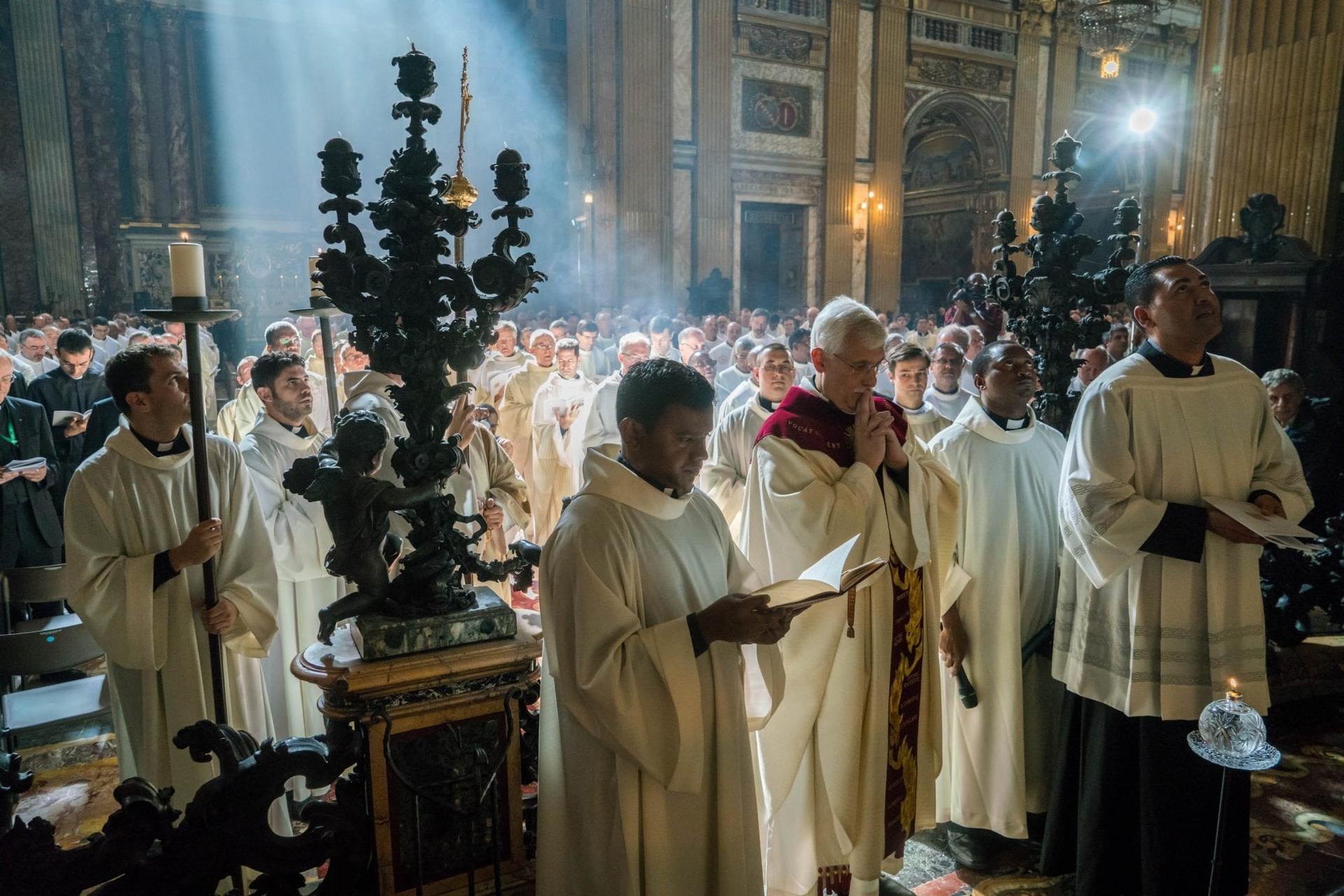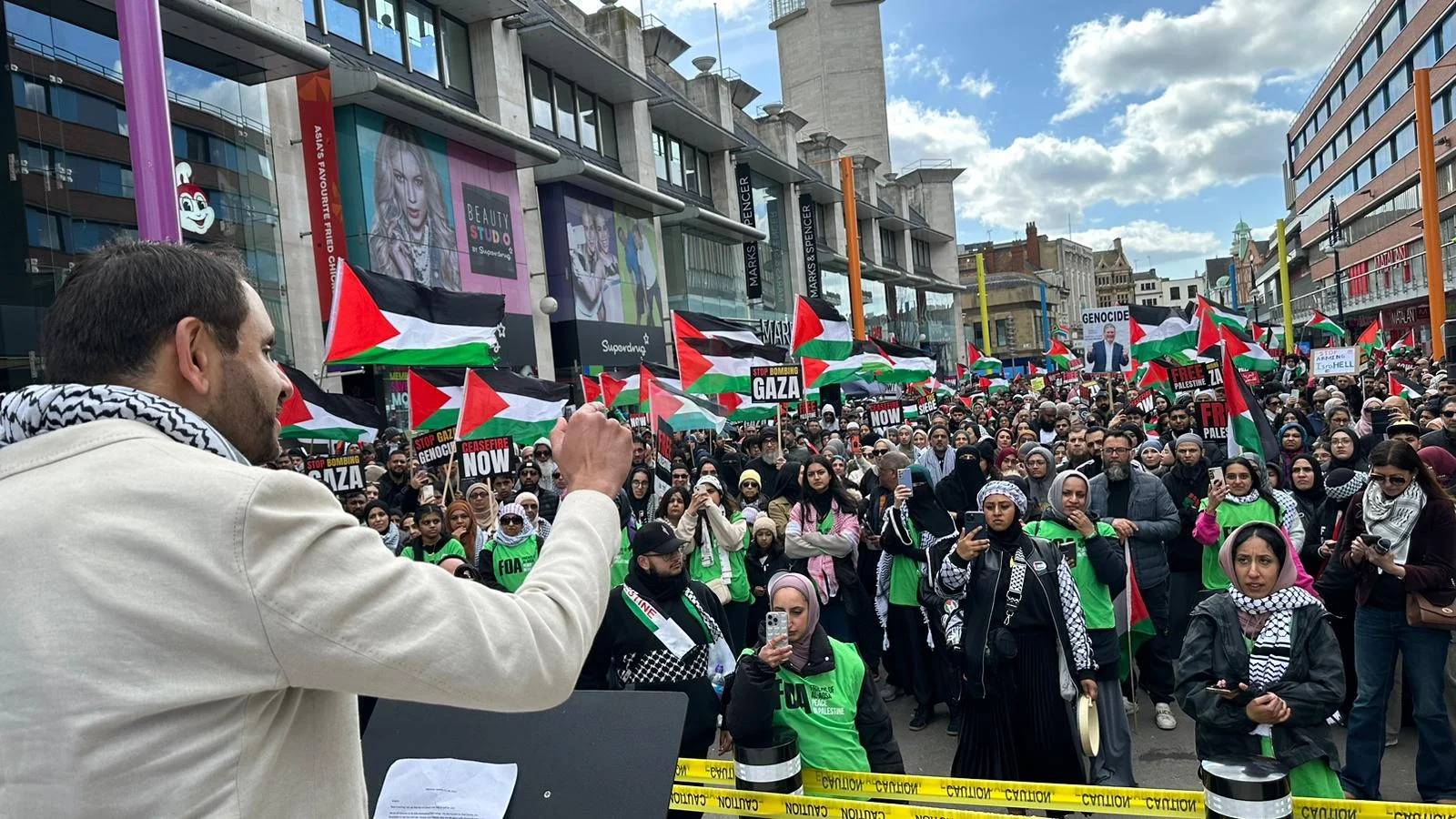When I asked Jesuits in Colombia and Ecuador a few weeks ago what kind of General they believed was needed for the next chapter in the Society of Jesus’s remarkable history, I didn’t, of course, get a single answer.
Jesuits are famously individual — ‘an orchestra of first violinists,’ as they are sometimes jokingly described. (The Italian equivalent is ‘three Jesuits = four opinions’).
But from many different conversations with Jesuits young and old in college residences in Bogotá, Guayaquil and Quito, I managed to boil down five. The new General, I learned, should be:
- Capable of at least keeping up with Pope Francis, who they believe is setting a pace and objectives that has effectively moved the frontier to Rome;
- A man of governance, able to manage the structural implications of a fast-shrinking body in Europe and a fast-growing one in Asia and Africa, enabling the Society worldwide to better cohere;
- An advocate of the social apostolate, a visionary capable of inspiring and articulating the worldwide Jesuit commitment to the poor, ecology, and human diversity, as did Pedro Arrupe, the General who steered the Society through the post-Vatican II renewal;
- Not too old (i.e. not over 70), because retiring after less than 10 years sits oddly with St. Ignatius of Loyola’s insistence that Generals be elected for life; and not least
- A Latin American, because it was time that the Society’s leadership reflected the southward gravitational shift in both the order and the wider Church, but not yet time for Asia and Africa, whose Jesuits often lacked knowledge of the universal Church.
Father Arturo Mercelino Sosa Abascal was one of a few names mentioned to me as a possibility. Looking back over this list and hearing, since Friday, from Jesuits at the General Congregation or who know Sosa, it is clear that he gets all five stars.
First, he has known Francis since both were together in the 1983 General Congregation that elected Peter-Hans Kolvenbach, and has grown closer to him since Sosa moved to Rome in 2014 to take charge of the Jesuit houses in Rome.
“Their current friendship will without doubt help the Jesuits better collaborate with the Holy See,” says Father Luis Ugalde, a Spanish Jesuit in the Venezuela province who knows Sosa well, and was provincial before him.
Second, he has long experience in Jesuit governance and in politics generally, which is both a family profession (his father was a government minister), as well as his academic expertise: he has a doctorate in political science from the Central University of Venezuela and a long list of publications to his credit.
Dr Rafael Luciani, a Venezuelan theologian at the Andrés Bello university in Caracas and Boston College, has worked with Sosa.
He describes him as “a great intellectual in the area of political and social sciences” who has been “one of the key thinkers within the Society of Jesus in Latin America,” a critic both of the ‘neo-liberal’ model of economic growth in the 1980s-90s as well as of the populist-totalitarian response of Hugo Chávez and Nicolás Maduro — a balance which, again, puts him squarely within the Pope Francis mold.
Sosa was the first native-born Venezuelan provincial, whose period (1996-2004) was longer than the usual six years because the previous provincial stood down early.
Both this, and the fact that he ably steered the Jesuits through a turbulent time of internal division under an authoritarian regime, make his past curiously like that of Jorge Mario Bergoglio, who was the Jesuits’ storm-pilot during the Argentine dictatorship in the 1970s.
Like Francis, too, Sosa is a natural leader, used to the exercise of authority: as the head of a major social research center in Venezuela, as university rector, and in the past few years as director of the Jesuits’ houses in Rome — the Curia, the Gregorian University, the Biblical Institute and the Observatory. He was appointed a counsellor-general by Father Adolfo Nicolás, the retiring General, in 2008.
Father Gerry Whelan, an Irish Jesuit lecturer at the Gregorian, describes Sosa as “a very decisive man, familiar and comfortable with leadership roles,” who “is not afraid to get into the middle of complex or fraught situations in order to work for a good outcome.”
“Most men would be rather intimidated by being appointed General,” Father Damian Howard SJ, a British province elector, told Crux shortly after the Jesuits emerged Friday from the election. “But he seems to be taking it in his stride — which is one of the reasons so many of us felt able to place this burden on his shoulders.”
Third, he is a man of the social apostolate in the spirit of Pedro Arrupe. His Jesuit conferes recall the eight years he worked on the remote and poor Colombian-Venezuelan border, as well as his leadership of the Gumilla Center, the Jesuits’ social action and research institute, from 1979, which under his leadership had a high profile in public debates.
Having been by far the wealthiest country in the region, oil-rich Venezuela had by the mid-1980s entered into a crisis of corruption and growing poverty, leading to the social explosion of 1992 which brought Chávez to power. Luciani recalls how Sosa was one of the leading critics of Venezuela’s oil-dependent growth and social inequality, but never regarded Chávez’s socialist alternative as having legitimacy.
Ugalde recalls that he and Sosa went to see Chávez shortly after he became president. “At first the situation was so bad that we placed some hope in Chávez, and Arturo and I went to see him to present to him our analysis of what was lacking in Venezuela. Nothing came of that meeting. We saw immediately what was obvious: we were in the hands of a soldier.”
In a 2014 lecture he gave on the Chavez regime in Medellín, Colombia, Sosa said it was clear from the start that “the military logic formed an essential part of the system of domination of the regime.”
In his first homily as General Oct 15, Sosa struck a decidely Arrupe-like note in saying he wanted the Jesuits to work for “what so many today regard as impossible: a humanity reconciled in justice, living in peace in a well-cared-for common home, where there is a place for everyone because we recognize each other as sister and brother, sons and daughters of the same, unique Father.”
Ugalde told Crux that Sosa was “clearly committed to the Second Vatican Council and following Jesus with a faith capable of working for a more just world without barriers of hatred and discrimination.”
Fourth, at 67 — Sosa turns 68 in November — the new General also meets the desire many Jesuits expressed to me for a vigorous leader who will stay the course.
“Like the pope, he isn’t afraid to hug and kiss,” says Ugalde. “He believes in lay people, in the networks, and he’s got a great sense of humor. For the Venezuelan Jesuits he has always been a reference point.”
Ugalde says Sosa “enjoys good health, although occasionally he complains of sciatica” (coincidentally, an ailment he shares with Francis), adding: “He will be a great general who will last.”
Whelan agrees. “He is a warm and robust extrovert who will make a fine leader.”
And fifth, he is a Latin-American. “Most of us arrived in town hoping that the regional shift in demography might now be accompanied by one in leadership,” says Howard, “and we have been given that.”
Luciani believes that Sosa represents a maturity in the Latin-American Society of Jesus, which absorbed the post-Vatican II changes under Arrupe and are now bearing fruit.
He believes the Latin-American Jesuits have “well-defined pastoral-theological options capable of responding to the challenges of the present time,” and that “Arturo will play a very important role in this context, as he has done in Venezuela.”


















